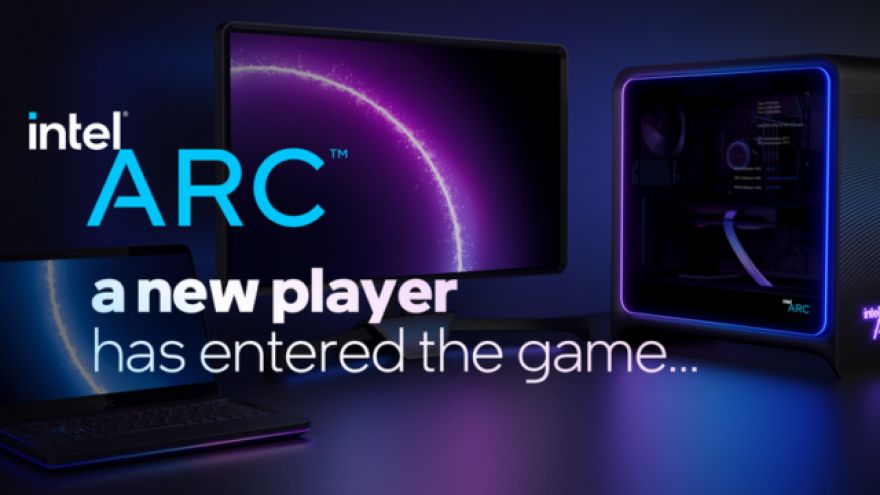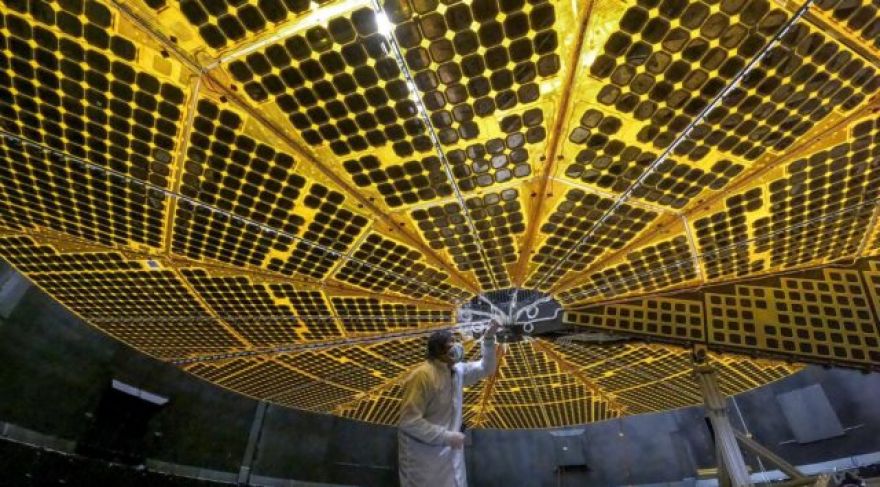
The expense of reaching space continues to drop, and that has led to an explosion in launches over the past few years. One of the most prolific is , which has multiple NASA contracts and a network of internet satellites that regularly call for new launches. But not everything we send up there stays put. Residents of southern Australia were surprised recently to find debris from a SpaceX mission scattered across the landscape. An astrophysicist who was called in to investigate the wreckage said it was a first-of-its-kind discovery. The debris crashed to Earth on July 9th, but a farmer living near Dalgety, New South Wales didn’t spot it until several weeks later.

As Intel inches closer to the launch of its Arc discrete graphics cards, one question remains paramount: Which companies will sell them? Will we have the usual options ranging from Asus, Gigabyte, MSI, and others? According to new reporting from Igor’s Lab, that might be a bridge too far. It also just might be part of Intel’s plan. It’s an often forgotten part of a product launch like this, which is that Intel has to convince its partners to get onboard. Normally, competitive pricing and performance helps, but for Arc that might not be a given. There are also questions over Return to Manufacturer (RMA) support, as well.

This week in space, we learn that Russia isn’t quite as ready to be done with the ISS as it might have indicated a few weeks ago. We’ll also hear that NASA’s Lucy spacecraft is in much better shape after successfully hauling its dodgy solar panel into proper alignment. Well, sort of. Close enough for government work. But the James Webb telescope also continues to impress. And NASA wants YOU to help spot space spirals on Jupiter. Allons-y! Russian official confirms Russia’s commitment to ISS In this week’s installation of geopolitical ping-pong, a Russian official confirmed Russia’s commitment to the International Space Station through 2024.

(Photo: Raghavendra V. Konkathi/Unsplash)Scientists appear to have found a way to bring dead tissue back to life—not through necromancy, but through a chemical cocktail called OrganEx. A group of neuroscientists, biomedical engineers, geneticists, and pathologists at Yale University are striving to increase the supply of organs eligible for human transplant by reviving cells in deceased animals. According to published last week in Nature, they’ve successfully used OrganEx to bring deceased pigs’ organs back from the dead without actually causing the pigs to regain consciousness. It started with a pig that had died just an hour before. In ordinary circumstances, the pig would be beyond saving: its heart had stopped, its blood was still, and its brain had ceased all activity.

Game publisher has been repeatedly recognized as the worst company in America, and yet it still rakes in money. During the company’s recent earnings call, EA was asked about its plans for single-player games. Although CEO Andrew Wilson claimed solo experiences are still part of its DNA, EA’s chief financial officer Chris Suh cut him off at the knees, reminding everyone that most of the company’s revenue comes from live services. EA is behind some of the most popular and iconic franchises in gaming, including Apex Legends, Battlefield, and Star Wars Battlefront. It should come as no surprise it has over the way it handles those games on numerous occasions.

In early July it was reported that Intel might be asking TSMC to slow its roll in producing the 3nm GPU tile it needs for Meteor Lake. That tGPU, short for tiled-GPU, will be matched with Intel’s own tiles to create its 14th generation Meteor Lake CPU. This is the company’s first “disaggregated” CPU, or tile-based design. Now there’s a second report stating Intel has asked TSMC to delay production of that tile until late 2023. The reporting indicates this will have a domino effect on TSMC, causing it to slow its 3nm expansion plans. TSMC has previously announced it was full steam ahead with 3nm production, which is supposed to be taking place in the second half of 2022.

(Photo: Daria Gordova/Unsplash)Climate change is having an unexpected and slightly jarring effect on the Florida sea turtle population: it’s skewing baby turtles mostly female. Rising atmospheric temperatures are causing the sand in tropical regions to become hotter. Because female sea turtles nest and lay their eggs on the beach, the hot sand has the ability to impact embryonic development. Sea turtles are somewhat unique in that sex determination doesn’t occur during fertilization; instead, the temperature of the surrounding sand ultimately determines which sexual organs a baby sea turtle develops. Hotter sand means the turtles are more likely to develop female characteristics.

(Credit: Getty Images) We’re all using more data than ever before, and the bandwidth caps ISPs force on us do little to slow people down — they’re . Legitimate network management has to go beyond penalizing people for using more data, but researchers from MIT say the algorithms that are supposed to do that don’t work as well as we thought. A newly published study suggests that it’s impossible for these algorithms to distribute bandwidth fairly. We’ve all been there, struggling to get enough bandwidth during peak usage to stream a video or upload large files. Your devices don’t know how fast to send packets because they lack information on upstream network conditions.

(Photo: Microsoft)Windows 11 offers users a number of ways to customize their desktops. Perhaps the most notable customization option is the noble widget, which can do anything from displaying the weather and the user’s calendar to cycling through photos or conveniently converting international currencies. Soon, there will be a new widget on the block: a Game Pass carousel that shows off the latest titles to join Microsoft’s subscription service. Microsoft earlier this week that it was introducing a Game Pass widget to the Dev Channel. The widget will display new additions to Game Pass as well as warn users when titles are about to leave the service.









